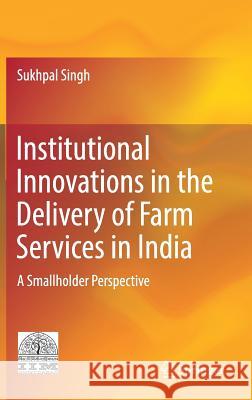Institutional Innovations in the Delivery of Farm Services in India: A Smallholder Perspective » książka
topmenu
Institutional Innovations in the Delivery of Farm Services in India: A Smallholder Perspective
ISBN-13: 9788132237525 / Angielski / Twarda / 2017 / 246 str.
Kategorie:
Kategorie BISAC:
Wydawca:
Springer
Język:
Angielski
ISBN-13:
9788132237525
Rok wydania:
2017
Wydanie:
2018
Ilość stron:
246
Waga:
5.33 kg
Wymiary:
23.5 x 15.5
Oprawa:
Twarda
Wolumenów:
01
Dodatkowe informacje:
Wydanie ilustrowane











